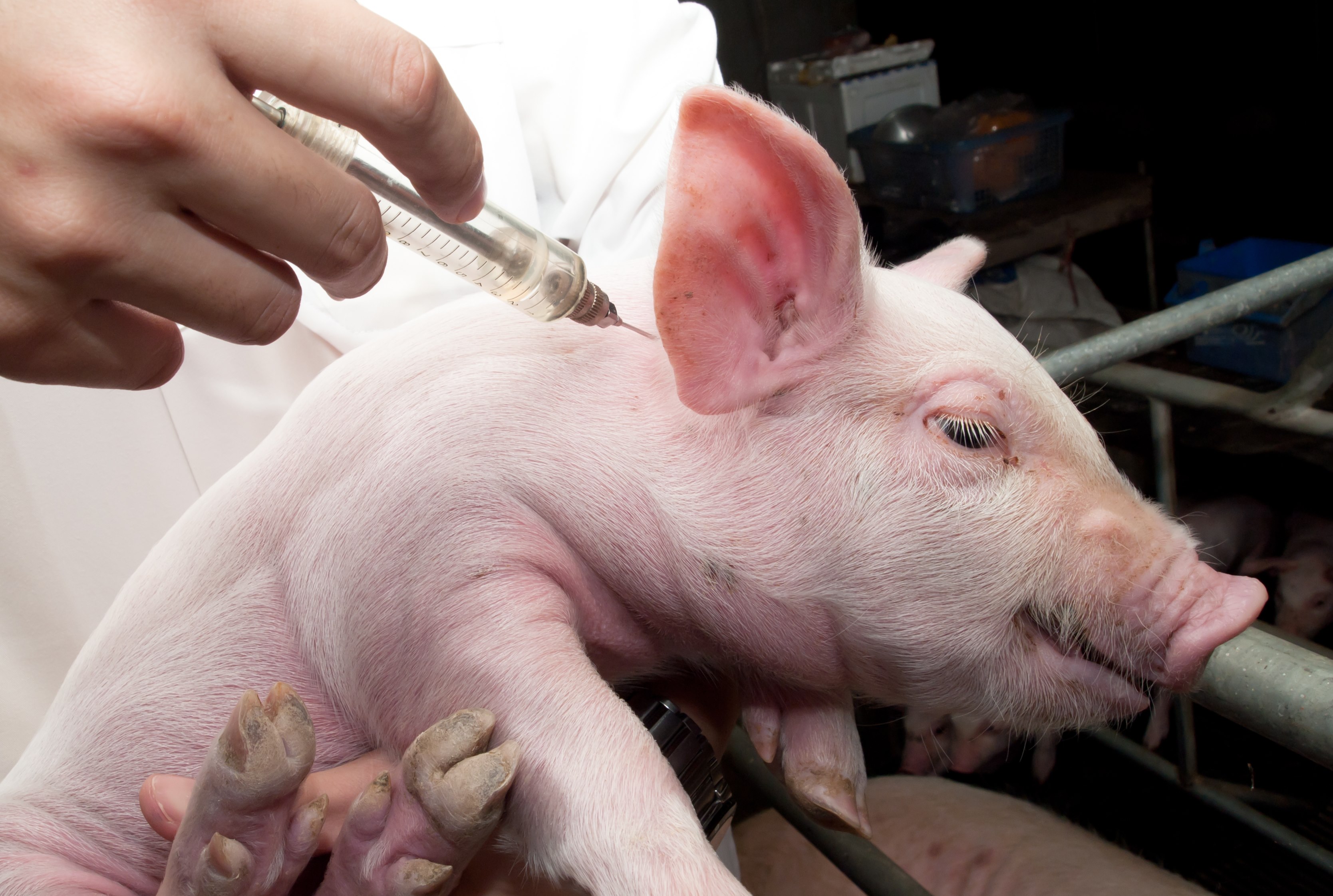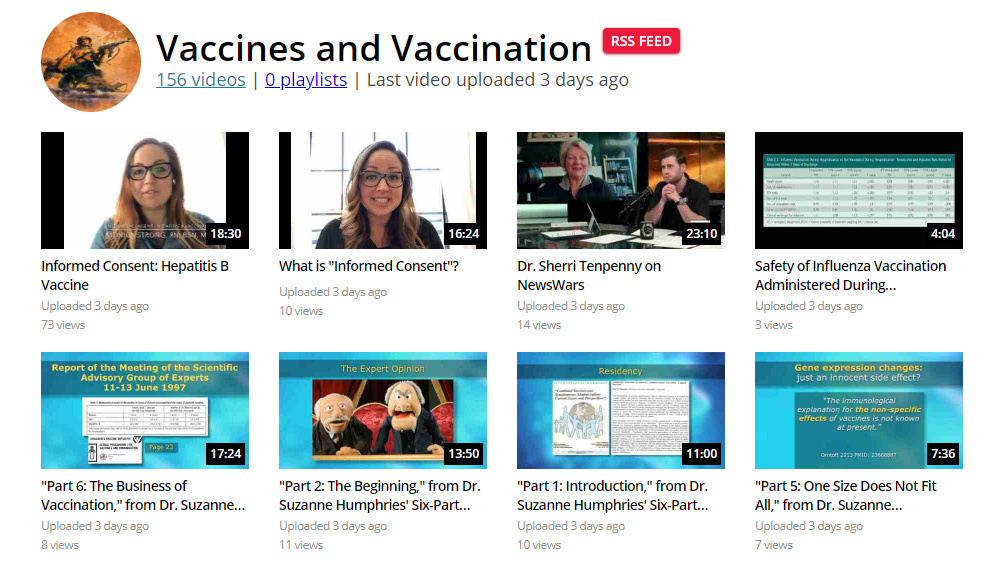Questionable data being pushed to support annual flu vaccination campaigns
02/04/2019 / By Lance D Johnson

The obnoxious annual marketing campaign for flu vaccinations is founded upon questionable data and false promises.
Every year, the U.S. Centers for Disease Control and Prevention (CDC) collects influenza virus samples from sick people around the world and reports to the World Health Organization (WHO) to help predict which flu virus strains are most likely to spread in the upcoming year. WHO’s Collaborating Centers for Reference and Research on Influenza includes the Francis Crick Institute from the U.K., the Victoria Infectious Disease Reference Laboratory from Australia, the National Institute for Infectious Disease from Japan and the National Institute for Viral Disease Control and Prevention from China.
An expert coalition guesses which sub-types of flu the whole population will be exposed to in the future
Laboratories from over 100 countries isolate influenza virus samples from sick people and send them to these collaborating centers. Every February, “experts” from these collaborating centers meet to discuss the availability of vaccine viruses and review the results of surveillance, laboratory, and clinical studies to make recommendations for the composition of upcoming influenza vaccines for the Northern hemisphere. In September, they meet again to predict which flu viruses will prevail in the southern hemisphere and prepare vaccine lots accordingly. Each country makes a final determination on what type of flu viruses they want manufactured into the vaccine supply for their population. In the United States, the Food and Drug Administration (FDA) makes the final determination.
In other words, a group of experts who have studied viruses taken from sick people a year before ultimately get to guess which combinations and sub-types of the flu virus the population will be exposed to in the upcoming year. A one-size-fits-all vaccine will be formulated to inundate the population’s immune system with guesswork on virus sub-types. Scientists have categorized influenza viruses in to four types: A, B, C, and D. Influenza C viruses cause mild respiratory illness and are often mis-characterized as “colds.” Influenza D viruses affect cattle. Influenza A and B viruses can cause severe respiratory illness in people. The most common influenza B viruses are known as B/Yamagata and B/Victoria. Influenza A viruses are harder to pinpoint. Researchers have named these viruses by sub-types according to the two proteins that exist on the surface of the virus (hemagglutinin and neuraminidase, denoted as H and N, respectively). Humans can be exposed to 18 different hemagglutinin sub-types (H1 – H18) and 11 different neuraminidase sub-types (N1 – N11).
Flu vaccine science causes mutations in flu virus sub-types, causing pandemics
To make matters more confusing for the “experts,” the influenza A viruses can mutate and emerge with new infectious traits while mimicking the same sub-type from the year before. In the spring of 2009, researchers identified a new infectious influenza A (H1N1) that was different from the current H1N1 viruses circulating at that time. Despite vaccination efforts, the virus emerged resilient and caused a pandemic that year.
After the “experts” select the virus sub-types for the upcoming vaccine, the viruses are quickly replicated, typically in chicken eggs. Scientists at the Scripps Research Institute (TSRI) found that the practice of growing influenza viruses in chicken eggs disrupts the major antibody target site on the virus surface, causing mutations. The influenza sub-type used in their study, H3N2, quickly mutated when grown in the chicken eggs.
Vaccine makers promised better results with the Flucelvax vaccine, which uses cultured animal cells, but the increase in effectiveness was hardly existent at all. While previous years’ vaccines were only 24 percent effective in preventing flu-related hospitalization in people aged 65 and older, the Flucelvax vaccine was 26.5 percent effective at achieving the same goal, according to an FDA study.
In his 2013 article, “Influenza: Marketing Vaccine by Marketing Disease,” BMJ associate editor Peter Doshi, Ph.D wrote: The only randomized trial of influenza vaccine in older people found no decrease in deaths. This means that influenza vaccines are approved for use in older people despite any clinical trials demonstrating a reduction in serious outcomes.”
Furthermore, he states, “Even when the vaccine is closely matched to the type of influenza that’s prevalent … randomized, controlled trials of healthy adults found that vaccinating between 33 and 100 people resulted in one less case of influenza.”
Flu vaccines are actually equipping flu viruses with new traits for survival, making flu viruses more diverse, with more resilient mutations that can hinder the elderly, the young, and the immune-compromised. The viruses that are being injected into people do not match the viruses that the people’s immune systems are actually facing in the wild.
This is why flu shots are a tragic failure. The viruses these “experts” are mass producing and pumping into the population rarely match the sub-types that people face. Even worse, the vaccines are causing further mutations that put people at risk. The failure of the science, the toxicity of accumulating mercury and aluminum (also included in the shots), and the adverse effects that people face following vaccination, equates to unsubstantiated risk and no promise of disease prevention.
Experts should study immune systems of the un-vaccinated who don’t get the flu
Yet, for some reason, annual flu vaccine campaigns are obnoxiously marketed from the aisles at Wal-Mart, to the signs at Walgreens, Target, and pharmacies everywhere. Instead of studying the reasons why un-vaccinated people do not get the flu in a given year, the world’s top research centers study viruses from last year’s sick population and use questionable data to predict the viruses that every person will be exposed to in the future. This herd-mentality science is not only impractical but it is irresponsible and dangerous. Trying to guess which pathogens will circulate in everyone’s lives, while exacerbating mutations of infectious viruses, is about as unscientific as it gets. Instead of looking at the failure of the annual flu vaccine objectively, the “experts” from the World Health Organization classify “anti-vaxxers” as a public health threat. Looking for someone to blame, the “experts” refuse to swallow their pride and admit their shortcomings. The WHO, the CDC, and the collaborating laboratories should be studying the immune systems of “anti-vaxxers” to better understand why their bodies fail to contract and/or quickly overcome the flu year after year.
For more truthful analysis of the flu and other vaccines, visit Vaccines.News.
Sources include:
Tagged Under: adverse events, Big Pharma, disease prevention, FDA, flu sub-types, Flu vaccine, herd mentality science, influenza, irresponsibility, Pandemics, politics of science, respiratory illness, sickness, Vaccine dangers, vaccine guesswork, vaccines, viral mutation, WHO

















